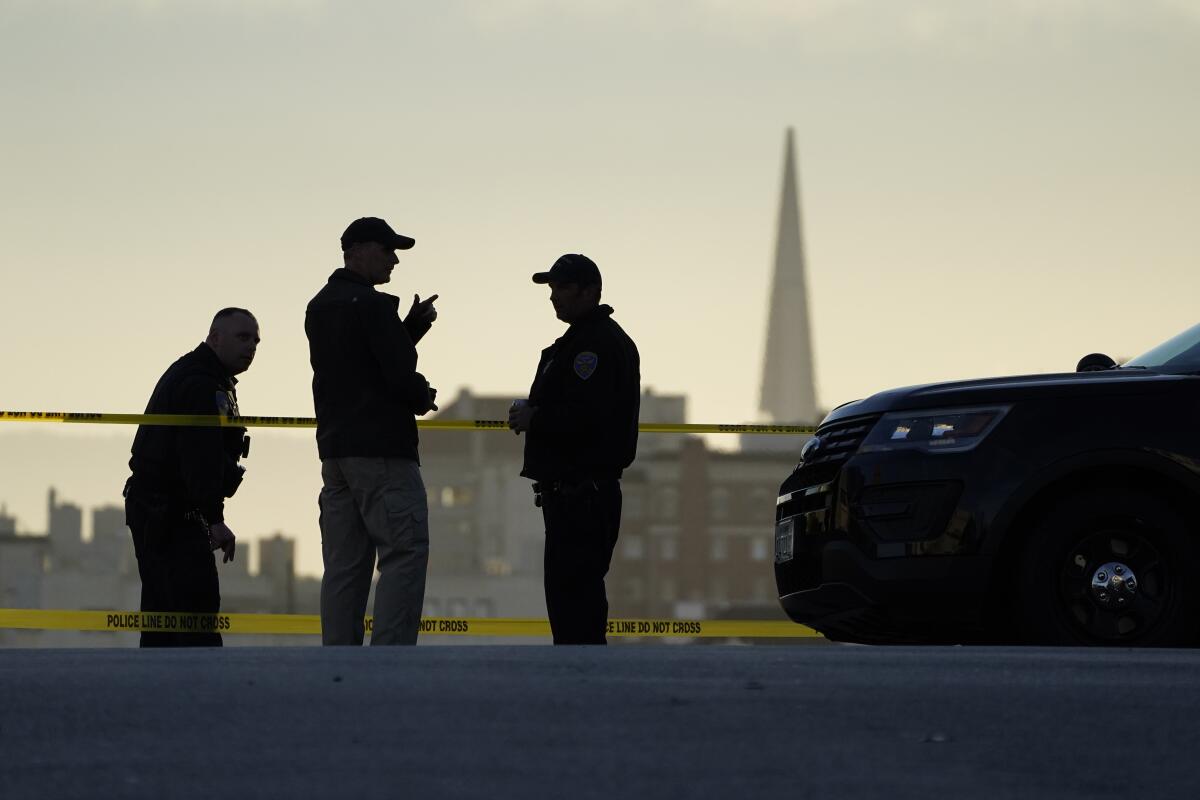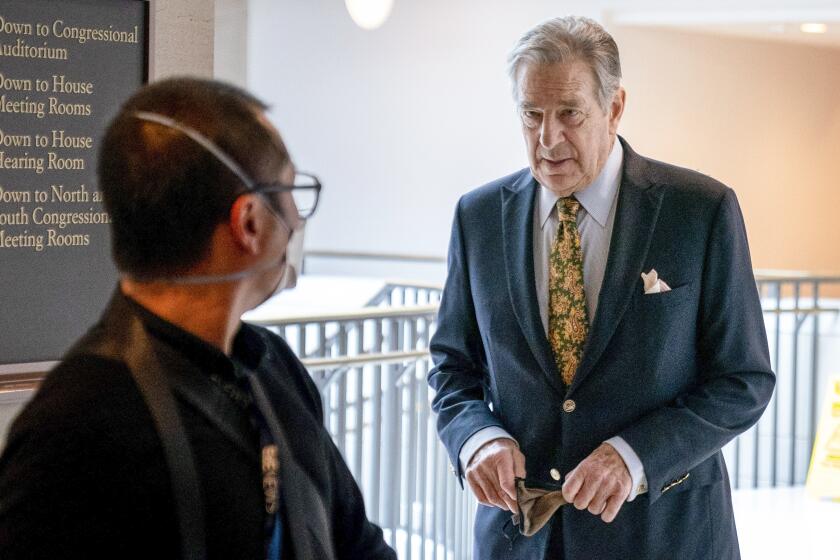Attack on Pelosi’s husband is seen as latest example of rising political violence

- Share via
WASHINGTON — Political leaders from both parties condemned Friday’s attack against House Speaker Nancy Pelosi’s husband, the latest in a string of incidents affecting members of Congress and their families this year.
Though the assailant’s motive is still under investigation, several lawmakers have blamed hyperpartisanship and divisive political rhetoric for an increase in political violence and security incidents in recent years. Those factors also contributed to the Jan. 6, 2021, attack on the U.S. Capitol.
Capitol Police has seen a steady rise in threats, which more than doubled annually from 3,939 in 2017 to 9,625 last year.
Through March 23 this year, Capitol Police said it has opened about 1,820 cases, including concerning statements and threats.
“The politics of hate, division, & fear-mongering have consequences & have resulted in targeted attacks on elected officials & their families,” Rep. Nanette Diaz Barragán (D-San Pedro) tweeted Friday. “We cannot and should not tolerate it.”
Suspect David DePape has been booked on suspicion of attempted murder and other counts. The assault on Paul Pelosi raises concerns as attacks on public officials rise.
Rep. Pramila Jayapal (D-Wash.) was threatened by an armed man outside her home in July. The Congressional Progressive Caucus chairwoman released a 75-second clip of threats she’s received over voicemail last month.
“Typically, political figures don’t show their vulnerability,” she wrote at the time. “I chose to do so here because we cannot accept violence as our new norm.”
Two days later, Rep. Karen Bass’ (D-Los Angeles) mayoral campaign announced the congresswoman’s home “had been broken into and burglarized.” She said two firearms that were “safely and securely stored” were stolen.
Rep. Lee Zeldin (R-N.Y.), who is running for New York governor, was attacked at a campaign event near Rochester in July.
Paul Pelosi, the husband of U.S. Speaker of the House Nancy Pelosi and a longtime businessman, was attacked Friday morning at his home in San Francisco.
This week, Rep. Mondaire Jones (D-N.Y.) blamed rising conservative political violence “and predicted it will only increase in the months and years to come.”
Such violence, he tweeted, is largely aimed at women and people of color “and has been mainstreamed by” some in the Republican Party.
The Times reported last year that Capitol Police was rethinking ways to protect members in and out of Washington, working more closely with the FBI and opening satellite offices outside of Washington for the first time. According to CNN, Capitol Police is now evaluating more security options to protect congressional leaders’ families.
Following the attack Friday, President Biden condemned all violence in a statement attributed to White House Press Secretary Karine Jean-Pierre, who said the president called Pelosi (D-San Francisco) on Friday morning and is praying for her husband and their family.
“What happened to Paul Pelosi was a dastardly act,” Senate Majority Leader Charles E. Schumer (D-N.Y.) said in a statement.
His Republican counterpart, Senate Minority Leader Mitch McConnell (R-Ky.), tweeted that he was “horrified and disgusted.”
Pelosi’s husband “was subjected to a brutal and deliberate attack in their home,” Senate Majority Whip Richard J. Durbin (D-Ill.) lamented. “Violence is never acceptable.”
House Minority Whip Steve Scalise (R-La.), who was the victim of a shooting at Republicans’ congressional baseball practice in 2017, said he was “disgusted to hear about the horrific assault.”
“Let’s be clear: Violence has no place in this country,” he tweeted.
According to the Associated Press, the assailant had a hammer and shouted, “Where is Nancy?” inside the home, suggesting the House Democratic leader, who is second in the line of presidential succession, was targeted.
Pelosi was in Washington with her protective detail at the time of the break-in, authorities said.
The U.S. Capitol Police is working with the FBI and San Francisco Police Department on a joint investigation.
More to Read
Get the L.A. Times Politics newsletter
Deeply reported insights into legislation, politics and policy from Sacramento, Washington and beyond. In your inbox twice per week.
You may occasionally receive promotional content from the Los Angeles Times.













